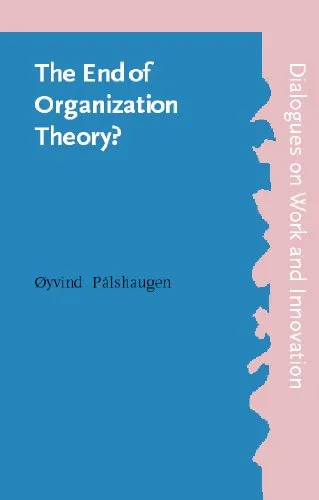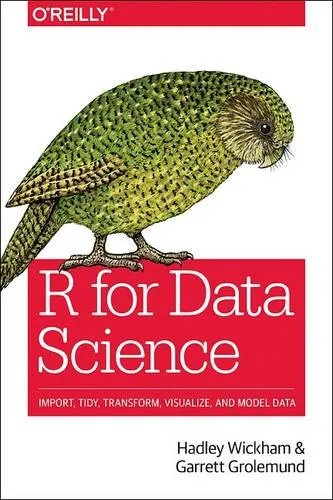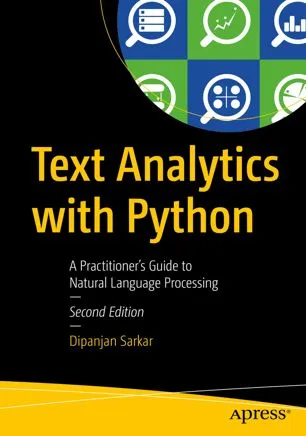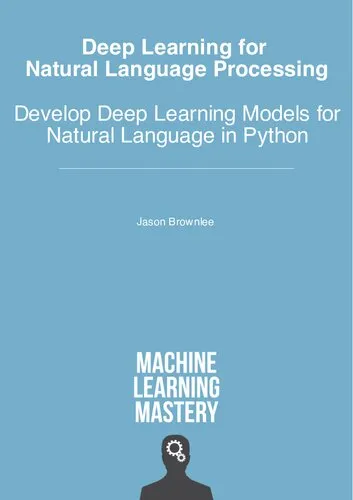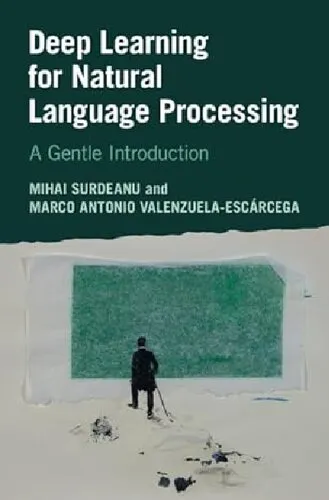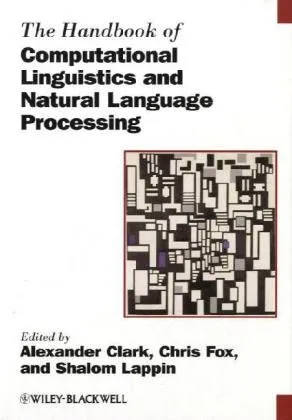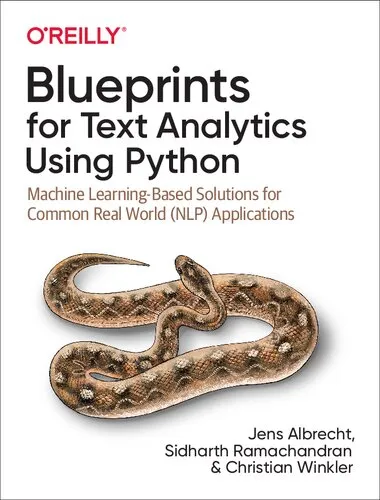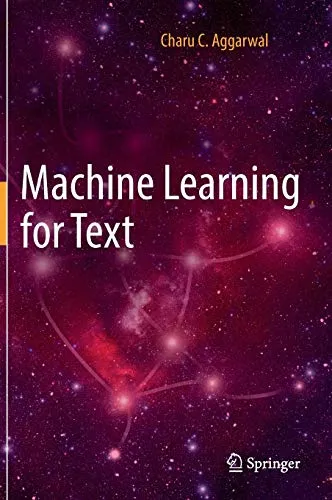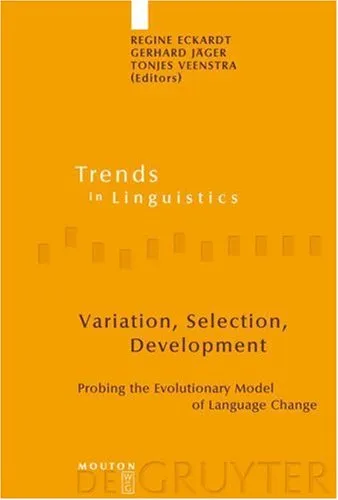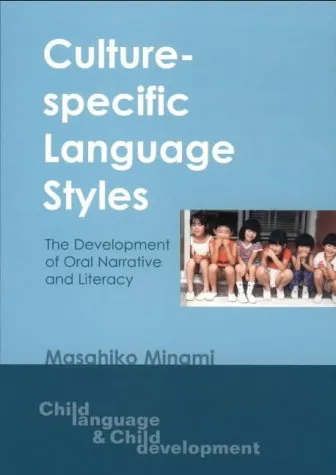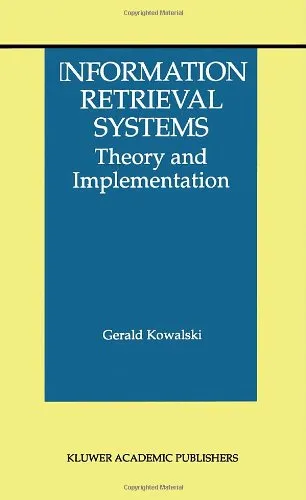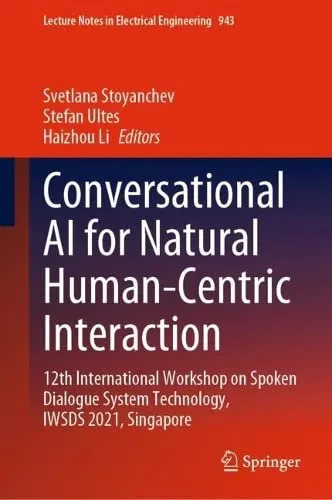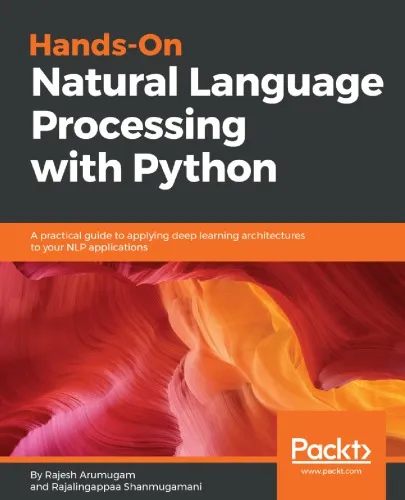The End of Organization Theory?: Language As a Tool in Action Research and Organizational Development
4.4
بر اساس نظر کاربران

شما میتونید سوالاتتون در باره کتاب رو از هوش مصنوعیش بعد از ورود بپرسید
هر دانلود یا پرسش از هوش مصنوعی 2 امتیاز لازم دارد، برای بدست آوردن امتیاز رایگان، به صفحه ی راهنمای امتیازات سر بزنید و یک سری کار ارزشمند انجام بدینکتاب های مرتبط:
Introduction to 'The End of Organization Theory'
Welcome to the profound exploration of organizational dynamics and the evolving tapestry of management paradigms through 'The End of Organization Theory'. This book challenges conventional wisdom and delves into the depths of organizational structures, processes, and the underlying philosophies that have shaped the business world for decades.
Detailed Summary of the Book
In 'The End of Organization Theory', the author embarks on a critical examination of the classical theories that have dominated the field of organizational studies. The book questions the relevance of traditional frameworks in the context of modern day organizations that are increasingly complex and adaptive. The narrative unfolds with a scrutiny of foundational theories, dissecting their core assumptions and scrutinizing their applicability in contemporary settings. It highlights the transition from rigid hierarchical structures to more fluid and decentralized forms of organization.
The book argues that the era of standardized practices and fixed theoretical models is dissipating, giving way to a new age characterized by innovation, agility, and a focus on human-centric approaches. It presents a compelling case for the dissolution of existing paradigms, proposing a paradigm shift in how we perceive and study organizations. This transformation is necessitated by technological advancements, globalization, and shifting cultural landscapes, all of which demand a more nuanced and flexible approach to organizational theory.
Key Takeaways
- The limitations of traditional organization theories in addressing the complexities of modern enterprises.
- The importance of embracing change and fostering innovation within organizational structures.
- The emerging role of technology and digital transformation in shaping organizational dynamics.
- Understanding the human element and its significance in the design and function of organizations.
Famous Quotes from the Book
"The dissolution of rigid organizational boundaries heralds a new dawn for creativity and adaptability."
"In the age of digital transformation, it is the human connection that will define the ultimate success of organizations."
Why This Book Matters
'The End of Organization Theory' matters because it challenges us to rethink the foundations upon which business schools have built their curriculums for decades. It serves as a clarion call for scholars, practitioners, and leaders alike to embrace new ways of thinking and to revitalize the study of organizations for the current era. The book provides a roadmap for navigating the complexities of the modern business environment, where agility and innovation are not just desirable but imperative for survival.
Its significance lies not only in its critical perspective but also in its capacity to inspire a transformative dialogue around the practice and study of management. By questioning established paradigms, it encourages a forward-thinking approach to organizational studies, one that is open to diversity, complexity, and continuous evolution.
دانلود رایگان مستقیم
شما میتونید سوالاتتون در باره کتاب رو از هوش مصنوعیش بعد از ورود بپرسید
دسترسی به کتابها از طریق پلتفرمهای قانونی و کتابخانههای عمومی نه تنها از حقوق نویسندگان و ناشران حمایت میکند، بلکه به پایداری فرهنگ کتابخوانی نیز کمک میرساند. پیش از دانلود، لحظهای به بررسی این گزینهها فکر کنید.
این کتاب رو در پلتفرم های دیگه ببینید
WorldCat به شما کمک میکنه تا کتاب ها رو در کتابخانه های سراسر دنیا پیدا کنید
امتیازها، نظرات تخصصی و صحبت ها درباره کتاب را در Goodreads ببینید
کتابهای کمیاب یا دست دوم را در AbeBooks پیدا کنید و بخرید
1299
بازدید4.4
امتیاز0
نظر98%
رضایتنظرات:
4.4
بر اساس 0 نظر کاربران
Questions & Answers
Ask questions about this book or help others by answering
No questions yet. Be the first to ask!
